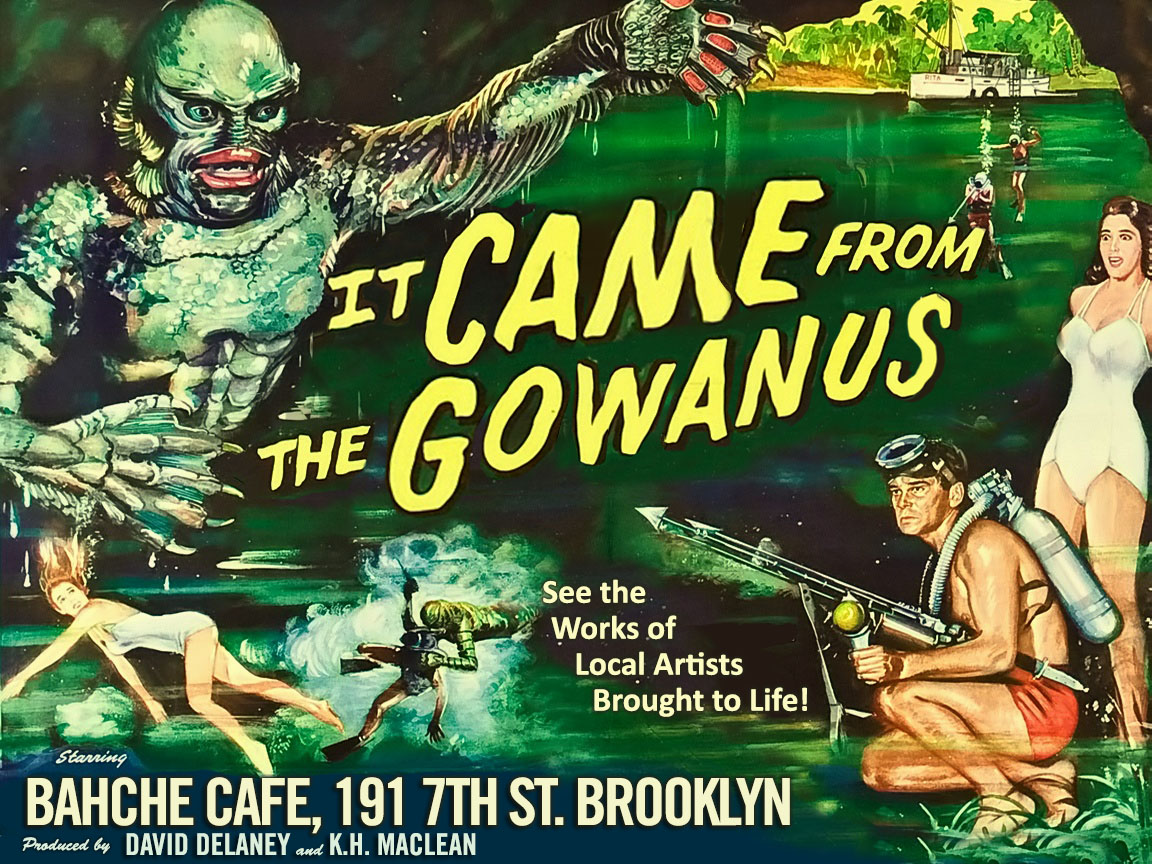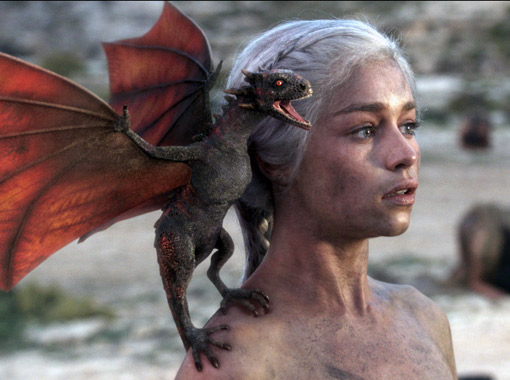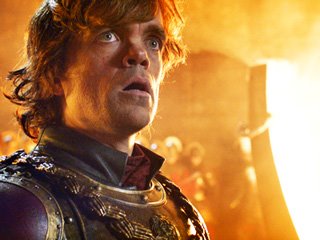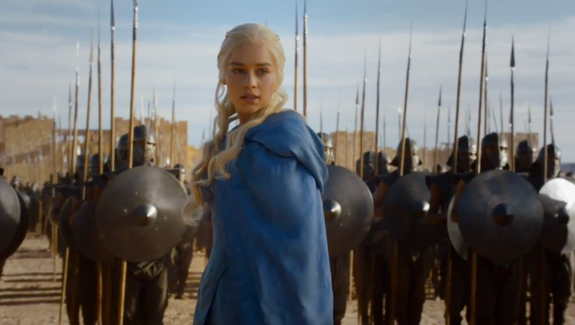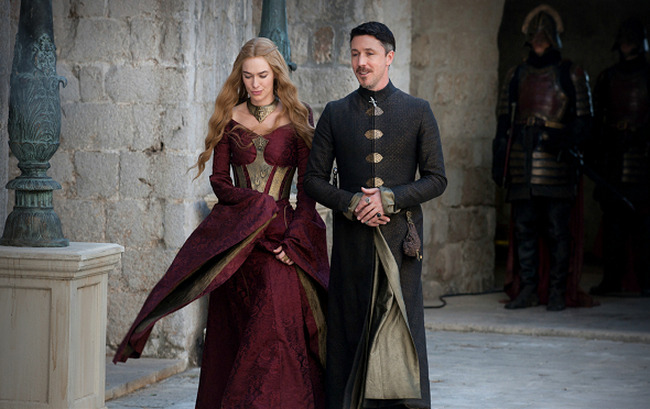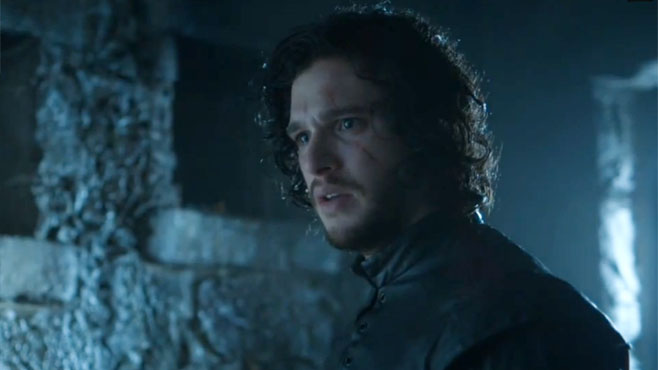Eating "The Leftovers"
 K.H. MacLean |
K.H. MacLean |  Friday, September 12, 2014 at 1:08PM
Friday, September 12, 2014 at 1:08PM  Watching this show is kind of like punching a wall.
Watching this show is kind of like punching a wall.
Grantland's Andy Greenwald posited a very insightful question in reviewing the first season of HBO's new series The Leftovers this past week: Has there been any indication that anyone has actually forgotten anything?
In that question is one of the great flaws of this ambitious show.
The Leftovers is hardly anyone's idea of a perfect show. Most people I have talked to struggled to stay with it. I repeatedly had to play catch-up deciding over and over to give it another chance. The Leftovers is a show that is just good enough to keep you wondering, it will flounder for multiple episodes before putting together enough powerful scenes to pull you back in.
In that, is one of the show's redeeming qualities. On the few occasions it manages to string together enough well written and coherent scenes for the audience to stop thinking "what the hell?" The Leftovers can evoke some strong emotional responses.
The experience of loss is a pretty universal and relatable theme to build a show around. Everyone knows the desperation, the frustration, the anger. It's in these moments that The Leftovers hooks people, gets them thinking. But, the show has of yet failed to take the next step after these initial moments. Nothing is explored beyond the surface, things are half-resolved in simplistic fashion with ham-handed imagery and metaphor. In the world of the Leftovers, two percent of the world's population disappeared by an "Act of God" and the show's plot is heavily populated by the all powerful deus ex machina.
 Need to wrap up a scene? Put a dog in it.
Need to wrap up a scene? Put a dog in it.
This band-aid solution is expertly demonstrated in the closing moments of the season finale when the oft tortured Nora Durst (Carrie Coon) seems to completely snap as she kisses two wax dolls vaguely resembling her family good night and prepares to drive off into the extremely ambiguous unknown. Nora's character has always been that of one barely holding it together beneath a calm veneer. So the snapping, while frustrating, is at least somewhat logical for the character. What's not so logical, for the character or the audience, is that she is suddenly flung back to sanity by the mere sight of a bi-racial baby. Yeah, sorry, not buying it.
Now, these existential problems of depth in the plot and characters are both very serious issues, but a show can get by with shallow characters and thin plot if its fun (see, 24). But a show without a consistently engaging storyline littered with characters the audience hates, that show is dead in the water.
Storylines that you can't wait for? Every show has them. We've all fast forwarded through Bran to get to Arya Stark. I'm not sure where to find them on The Leftovers. In episode 3, "Two Boats and a Helicopter", the preacher character (played by Chris Eccleston) is fascinating and complex. But everything he does and feels seems to be completely forgotten just two episodes later. Embattled police chief and central character, Kevin Garvey (Justin Theroux), has the most consistent presence on the show, but even he is prone to stretches of fatigue (that absurdly stupid dream sequence in the finale, anyone?).
Characters you hate? Oh, this show has got them. I've never watched a show that had so many storylines I got violently angry at the sight of. Too much goes unknown to make the audience invested and too little make sense for use to care (so, who the hell was Wayne?).
Then, there is the Guilty Remnant.
 Ladies and Gentlemen: I give you the most obnoxious, hypocritical, self righteous, stupid faced character in the history of television.
Ladies and Gentlemen: I give you the most obnoxious, hypocritical, self righteous, stupid faced character in the history of television.
There is nothing interesting about watching insanity in a vacuum. That is exactly what the audience is subjected to every time Liv Tyler's stupid face smoking a cigarette on screen.
I could believe that if an event like the one depicted in the show actually occurred a part of the population would lose it completely and go off and live in a silence vowed cult somewhere. But that's not interesting enough for show runner Damon Lindelof, so the Guilty Remnant has to be a group with goals (yes, I know it's based on a book, I'm still not letting Lindelof off the hook on this one). Those goals, according to them, are to make people remember. Remember the event that absolutely no one on the show has been able to move on from, much less forget.
Here's the problem with the Guilty Remnant: They're hypocrites and they're liars and no one seems to be aware of it. They vow silence but then they talk. They say they want people to remember but what they really want is for people to give up, to let their grief consume them and stop living. In spite of these two very obvious issues, no one else on the show calls them out on it or even appears to notice. Instead, the show's finale serves as validation for the GR. They made the good townsfolk remember and they just couldn't handle it.
Ugh.
By the way, does anyone on this show ever, EVER lock their doors? How is it the GR can just waltz all willy nilly into these houses over and over again? Is this show set in New York or Pleasantville?
Show runner Damon Lindelof is not one to turn a blind eye to negative reviews. When Lost tanked on its ending he heard the cries and he answered them. Fairly or not, The Leftovers, have drawn a lot of comparisons to Lost, most of them disparaging. I don't see many similarities between the two in the way of show structure but the connections between central characters and the tactic of using emotional triggers as a stand-in for actual resolution are all too familiar.
The music swells, someone cries, and everything is magically alright.
The Leftovers has already been renewed for another season, and I don't know where it will go from here. The source material is supposedly exhausted so Lindelof will have quite a bit of latitude. I hope he uses it well, but I probably won't stick around to find out.
 Overrated,
Overrated,  TV
TV  Damon Lindelof,
Damon Lindelof,  HBO,
HBO,  KH MacLean,
KH MacLean,  Lost,
Lost,  The Leftovers |
The Leftovers | 






